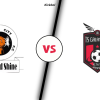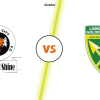The Rise of English WSL: A New Era for Women’s Football
Women’s football has been garnering significant attention and support in recent years, with one of the leading contributors being the English Women’s Super League (WSL). The league, established in 2010, has witnessed remarkable growth and has emerged as a powerful platform for promoting and elevating women’s football to unprecedented heights.
Emergence of English WSL
The establishment of the English Women’s Super League was a significant turning point in the history of women’s football in England. The league replaced the FA Women’s Premier League as the highest level of women’s football in the country and introduced a more professional and competitive structure.
The English WSL went through various phases of development but was officially relaunched in 2018 as the fully professional top-flight division. This development not only attracted leading international players but also increased corporate sponsorships and media coverage, thrusting the league onto the global stage.
Comparison with Other Leagues
When comparing the English WSL to other women’s football leagues around the world, it becomes apparent just how much progress has been made in such a short time. Here is a comparison table showcasing some key aspects:
| League | Established Year | Professionalism | Prize Money | TV Coverage |
|---|---|---|---|---|
| English WSL | 2010 (relaunched in 2018) | Fully professional | £500,000 | Extensive coverage |
| German Frauen-Bundesliga | 1990 | Semi-professional | €100,000 | Moderate coverage |
| French Division 1 Féminine | 1984 | Semi-professional | €50,000 | Strong coverage |
| USA National Women’s Soccer League (NWSL) | 2012 | Partially professional | $50,000 | Widespread coverage |
Biggest and Most Successful Teams in English WSL
Several teams have emerged as powerhouses and fan favorites in the English Women’s Super League. These clubs have not only dominated the league but also made their mark in international competitions. Here are some of the biggest and most successful teams in the English WSL:
-
- Manchester City Women’s FC
-
- Chelsea Women’s FC
-
- Arsenal Women’s FC
-
- Manchester United Women’s FC
-
- Everton Women’s FC
These teams have consistently displayed exceptional skills and strategies on the field, attracting impressive support and carving their place in women’s football history.
Frequently Asked Questions (FAQs)
Q: How many teams participate in the English WSL?
A: The English WSL is currently composed of 12 teams.
Q: Are the players in the English WSL full-time professionals?
A: Yes, the players in the English WSL are full-time professionals, which has contributed greatly to the league’s growth and quality of competition.
Q: Is there equal pay for women’s football in the English WSL?
A: While significant progress has been made, there is still a disparity in pay between the men’s and women’s game in the English WSL. However, efforts are being made to address this issue and promote equality.
Conclusion
The English Women’s Super League has undoubtedly brought about a new era for women’s football, transforming the sport into a highly competitive and widely celebrated endeavor. With its professional structure, increased investments, dedicated fanbase, and international talent, the league has taken women’s football to new heights, inspiring a generation of young athletes and changing societal perceptions. As it continues to grow and evolve, the English WSL is poised to make an even greater impact on the global stage and shape the future of women’s football.










